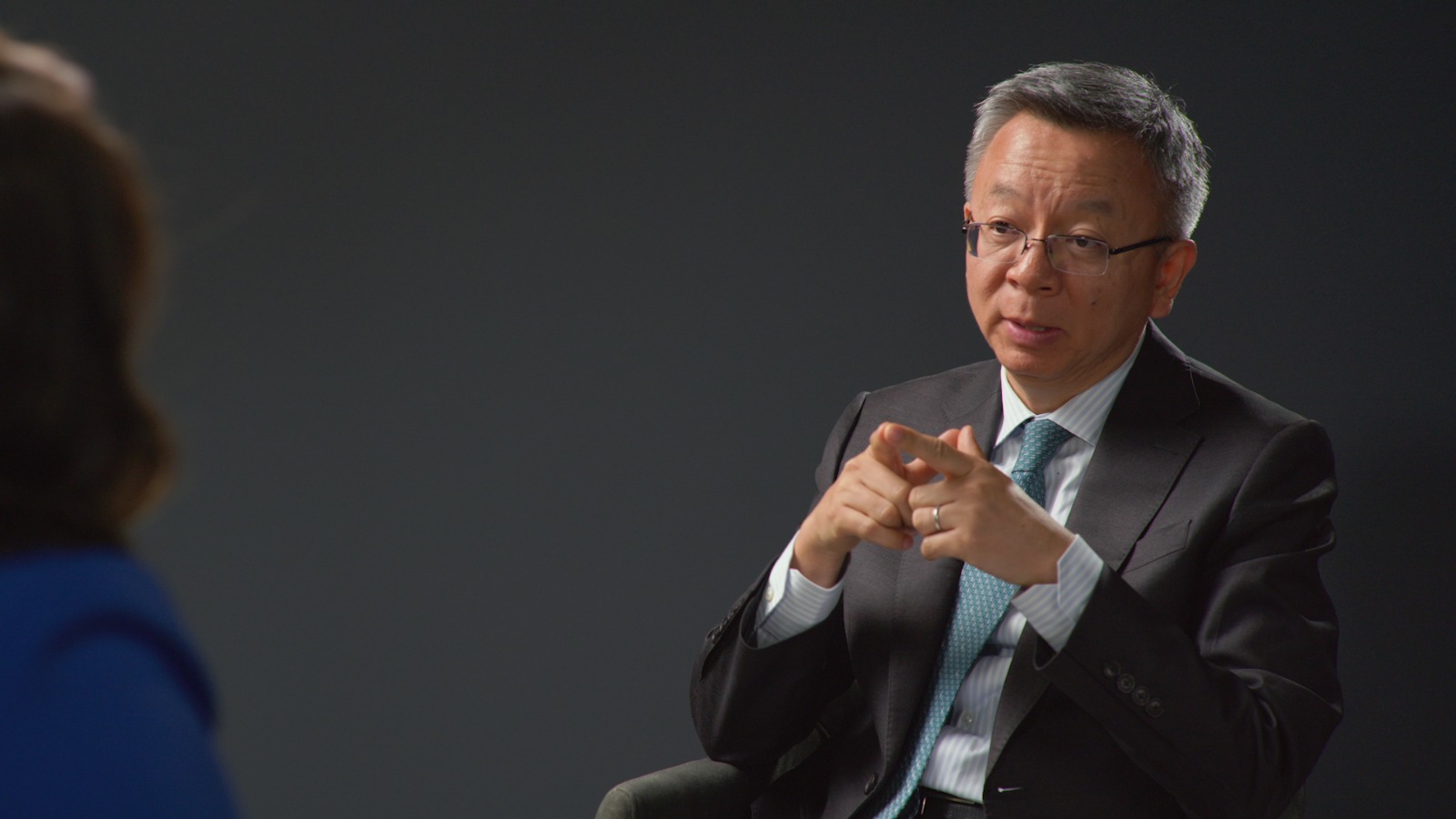ASTANA — In an interview with The Astana Times YouTube channel, Deputy Managing Director of the International Monetary Fund (IMF) Bo Li discussed the urgency for the region to invest in climate resilience and focus on structural reforms to boost economic growth.

Deputy Managing Director of the International Monetary Fund (IMF) Bo Li. Photo credit: The Astana Times
Li also emphasized the economic resilience of the Caucasus and Central Asia (CCA) region, which achieved a 4.9% growth rate in 2022 despite facing challenges such as inflation and ongoing energy reforms.
Macroeconomic stability
According to Li, the key to maintaining stability is a strong policy framework, fiscal consolidation, and diversification through structural reforms.
“How to build macroeconomic stability? One is there should be a strong policy framework and fiscal policy. That is why we recommend fiscal consolidation to the government so that they can build and preserve fiscal buffer. In addition to fiscal and monetary policies, there is also a need for economy diversification because a diversified economy is more resilient to shocks,” Li said.

In an interview with AT correspondent Aida Haidar. Photo credit: The Astana Times
Li stressed that diversifying the economy requires structural reforms that promote private sector development, strengthen the manufacturing and service sectors, and ensure private enterprises can compete fairly with state-owned companies. He also added that achieving macroeconomic stability is impossible without substantial investment in climate resilience.
“Climate change is a major factor. We need to consider that when we think about macroeconomic policy,” he said.
Li emphasized that the IMF places strong importance on helping countries integrate climate change considerations into their macroeconomic policies, going beyond traditional fiscal and monetary strategies.
Structural reforms
Li discussed the importance of structural reforms in boosting economic growth in the region.
“Our analysis shows that structural reforms could increase GDP by 5 to 7% in the next five years if we have the proper reforms,” he said.
The IMF recommends reforms in three key areas. The first focuses on governance, which includes combating corruption, promoting transparency, strengthening the rule of law, protecting property rights, simplifying regulatory requirements, and reducing the state’s role in the economy.
The second key area of reform, Li said, is opening up the market and creating a level playing field between private enterprises and state-owned enterprises (SOE). According to him, this requires SOE reforms that ensure equal access to various sectors of the economy for both private and state-owned companies. Li noted that fair competition between these groups is essential for fostering growth. He emphasized that it is crucial to open the market not only to domestic private capital but also to international investors, as a truly open economy encourages competition, drives adherence to international standards, and fuels economic growth in a competitive environment.
The third reform, according to Li, involves strengthening the financial sector’s ability to convert savings into long-term investments. For sustainable growth, he said, the country must invest in education, healthcare, infrastructure, and climate resilience—areas that require significant long-term investments.
“However, public money is very limited. The countries need to attract private savings and capital into this long-term investment,” he added.
Interregional cooperation
Li emphasized Central Asia’s strategic position between major markets such as Europe and China, noting that in today’s globalized era, the region has the opportunity to reclaim its historic role as a bridge connecting these markets.
“How to play that role again? How can Central Asia be a bridge in a new globalized world? We think several things are important. One is to allow the free flow of goods, services, capital and people, right? Reduce trade barriers. That will be one thing this region can do to facilitate trade and investment,” he said.
Li also stressed the importance of enhancing infrastructure connectivity, including roads, the internet, and other key systems. By improving connectivity not only to the west but also to the east and to the north as well as the south, Central Asia has the potential to reestablish itself as a vital global bridge. Streamlining regulatory processes will further boost regional integration.
“An integrated region can be a more significant player than fragmented, isolated countries,” he noted.
Li reiterated the importance of regional cooperation, reducing trade barriers, improving infrastructure, and simplifying regulatory standards. According to IMF analysis, addressing these areas could increase trade by over 15%.
Climate change
Addressing climate change, Li pointed out that climate change poses a significant risk for the region, with potential GDP losses reaching 6.5% by 2060. According to Li, one key measure the governments in this region could take to address climate change is to strengthen their mitigation policies by raising the price of carbon.
“There is still a lot of fossil fuel subsidy in this region. Fossil fuel subsidy is bad because it is like a negative carbon tax. It is also a regressive subsidy to the rich people. We are recommending governments, not only globally but also in this region, to phase out those fossil fuel subsidies by phasing that out. It can raise the carbon price, but it can also generate resources for the government to support the green transition, right? It is a win-win situation,” he said.
Li acknowledged that higher energy prices could affect vulnerable groups, suggesting targeted support for low-income families to help them manage increased energy costs.
“A targeted support is much better than a blanket fossil fuel subsidy,” he said.
The IMF recommends focusing on long-term climate resilience by investing in climate-resistant infrastructure such as roads, housing, and hospitals. Li highlighted Kazakhstan as an example, urging that the National Fund should not be used to cover budget deficits. Instead, those savings should be reinvested in the long-term resilience of the economy. He emphasized that the financial sector, including a robust financial market and strong banking system, should play a key role in bridging savings and investment.
Li also highlighted the importance of leveraging technological advancements to adapt to climate change and reduce carbon emissions.
“In the last ten years, we have seen a lot of technological advancement. There are various cheap renewable energy resources like solar and wind. We see a lot of climate adaptation technology as well. Countries should tap into that technological advancement to develop renewable energy,” he concluded.
